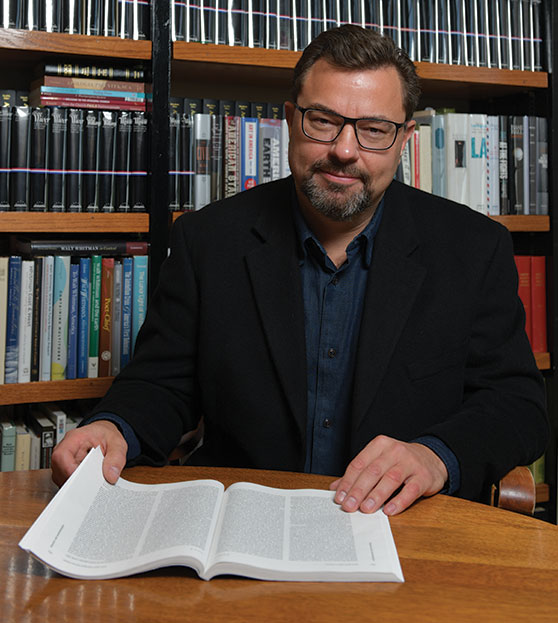A Poet’s Sojourn in Camden, New Jersey
William Pannapacker, Ph.D. | DuMez Professor of English
Most people think of Walt Whitman, if they think of him at all, as that 19th-century poet from high school English Lit who penned Leaves of Grass.
However, Dr. William Pannapacker thinks about Whitman a lot. And when he does, his thoughts fill with superlatives.
“Walt Whitman is, in many ways, the preeminent literary figure of the United States,” Pannapacker maintains. “Almost no one else has his stature, certainly not in the realm of poetry. He threw away most of the rules of conventional verse form, pioneering — if not inventing — free verse, giving poets the freedom to say things they could not say before. He is certainly the most original poet the U.S. has ever produced — maybe the world, since classical times.”
Whitman’s life ended where Pannapacker’s began, in Camden, New Jersey, across the Delaware River from Philadelphia. After the poet suffered a stroke in 1873, he moved in with his brother there to recuperate. The poet’s relatively underreported final years are the focus of Pannapacker’s ongoing research for a book with the working title Whitman’s Philadelphia.
He has written six chapters so far, three of which have been published in scholarly books and journals.
In 2018 he pursued background research “to get a handle on everything that was around Whitman during those Camden years,” he says. “I was born in Camden and grew up in Philadelphia. Perhaps that’s one reason I chose this project — because of deep familiarity, a love for that place, and a desire to go back there regularly to do research. It brings me home.”
One surprising finding from his research is how some members of Philadelphia’s cultural elite embraced Whitman after his stroke. “Though he presented this image of being very poor and living in ‘a shanty,’ as he called it, wandering around like a homeless man, he hobnobbed with some of the most wealthy and powerful people,” Pannapacker says. “Much of that came through powerful women of his time. Ladies’ literary societies embraced Whitman because of his lifelong commitment to gender equality.”
Pannapacker calls Whitman “a blue-chip stock” in terms of literary scholarship. Whether they like him or not, American poets — and even those around the world — must reckon with the impact of his poetry and persona. “One of his novels, Life and Adventures of Jack Engle, just came out recently,” Pannapacker notes. “It first appeared in a newspaper, unsigned, and now we know it was him. So he’s still publishing. With Whitman, all things are possible.”
Read a recent essay by Dr. Pannapacker about loss, wisdom and Walt Whitman.

